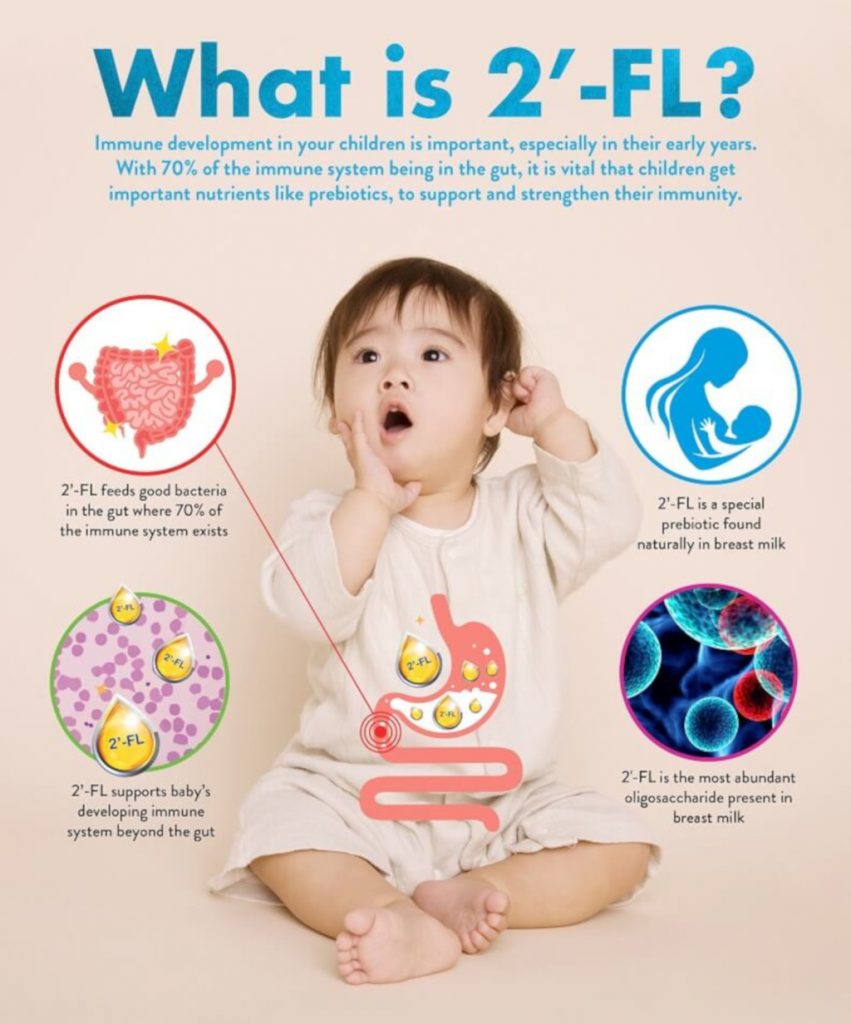SingaporeMotherhood | Baby & Toddler
July 2019
Is Formula Milk Making Your Baby Fuss and Cry? Try This

Is your baby fussing and crying for extended periods for no apparent reason? Does your little one experience constipation? Is she showing signs of colic? If you’ve ruled out all physical possibilities – fatigue, soiled diaper, hunger, heat or cold – that may be causing your baby discomfort, how about formula intolerance?
Feeding Intolerance caused by Ingredients in Formula Milk?
Breast milk is the best milk for every newborn, and Singapore supports1 the World Health Organization’s recommendation on exclusive breastfeeding for the first six months of life.

After six months, for parents who opt for mix feeding with formula milk, formula intolerance is not unusual among babies. In fact, up to 91% of formula-fed babies experience feeding intolerance2 such as colic, gas, fussiness, spit-up, constipation and eczema.
One possible reason why these feeding problems occur is the ingredients used in formula milk. As babies’ digestive systems are still developing, they may not be able to properly digest some of these ingredients.
That is why it is important to check the ingredients when choosing formula milk for your baby.
5 Questions to ask when Choosing Formula Milk

When choosing a suitable formula to feed your baby, check for these features:
✔ Is it hypoallergenic?
During digestion, proteins are hydrolysed into di- and tripeptides and amino acids that are absorbed into the small intestine. In some formulas, the protein source is partly broken down (partially hydrolysed). A formula made up of 100% partially hydrolysed whey protein is known to be a hypoallergenic formula. Such formulas are easier for babies to digest.
✔ Is it lactose-free?
Lactose sensitivity can cause abdominal pains, spit-ups, gas, and cramps. This happens when the bacteria in baby’s large intestine ferments non-digested lactose to produce gas and other compounds. This can lead to bloating and watery stools. Switching to a low lactose or lactose-free formula can help manage your baby’s tolerance issues.
✔ Is it palm-oil free?
The fat blend used in milk formulas may affect your baby’s stool consistency and frequency. Some formulas have a predominantly palm oil blend, resulting in harder stools that may be more difficult to pass. This would naturally cause discomfort to your baby.

✔ Does it contain 2′-FL?
2-fucosyllactose (2′-FL) is a milk oligosaccharide, part of a group of immunity-boosting prebiotics that makes breast milk superior3. It stimulates the growth of good bacteria in the gut. As 70% of the immune system is in the gut, keeping the gut healthy can help babies build stronger digestive and immune systems. Abbott, which has over 15 years of research on 2’-FL, is the first in the world to introduce this breakthrough ingredient in their formula milk range.
✔ Does it have added nutrients?
Up to 75% of your baby’s brain development takes place within the first year, and nutrients such as Natural Vitamin E, Lutein, and DHA help support this. Taurine boosts overall mental and physical development, while choline supports overall mental functions. Nutrients such as these in your baby’s formula milk ensure that your baby is receiving essential nutrition with every sip.
The Right Formula can Help Baby Feel Better
Given the extensive options on the market, how do you know that you have made the right choice of formula milk for your little one? We’d suggest looking at the ingredients, in tandem with your baby’s feeding experiences over the past months.

If your baby tends to have tummy troubles, consider a lactose-free and easy-to-digest formula, such as one made with 100% partially hydrolysed whey protein. These are smaller whey proteins and are therefore gentler on your baby’s tummy.
In addition, look out for a formula that is enhanced4 with 2’-FL, an immune-nourishing prebiotic. Nucleotides also help build immune cells and trigger the release of antibodies. Together, they help to support your baby’s growing immune system.
The most ideal choice of formula milk is one that boosts baby’s health and development while being gentle on the tummy. This means less fussiness, fewer tears, and more smiles. A win-win situation for baby, and for you too!
To find out more, please visit www.similactotalcomfort.sg
Sources:
1 https://www.hpb.gov.sg/docs/default-source/default-document-library/5th-edition-of-the-sifecs-code_as-of-020119.pdf
2 Based on an Abbott survey in 2013 with 2,383 Singapore parents/caregivers
3 https://abbottfamily.com.sg/articles/science/breakthrough-milk-formula
4 https://abbottfamily.com.sg/2-fl
This post is brought to you by Abbott and New Similac Total Comfort, now enhanced with 2′-FL and nucleotides
All content from this article, including images, cannot be reproduced without credits or written permission from SingaporeMotherhood.
Follow us on Facebook, Instagram, and Telegram for the latest article and promotion updates.





